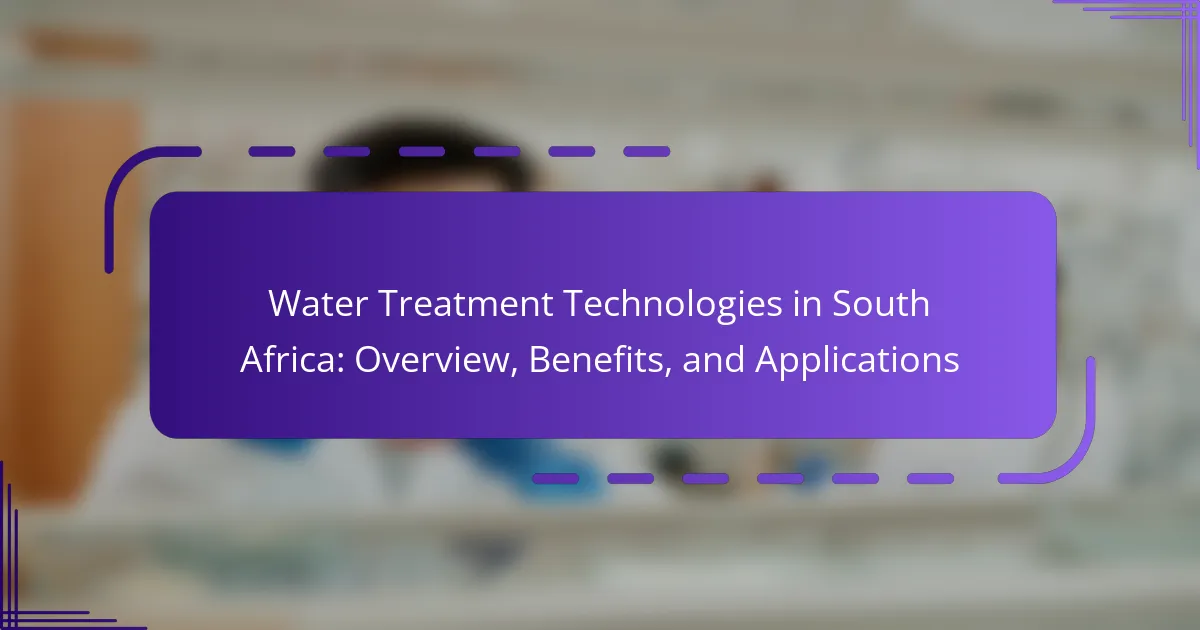Water treatment technologies in South Africa encompass various methods for purifying water to address challenges such as water scarcity and contamination. Key technologies include reverse osmosis, filtration, and disinfection methods like chlorination and UV treatment, all crucial for ensuring safe drinking water. These technologies not only improve water quality but also play a significant role […]
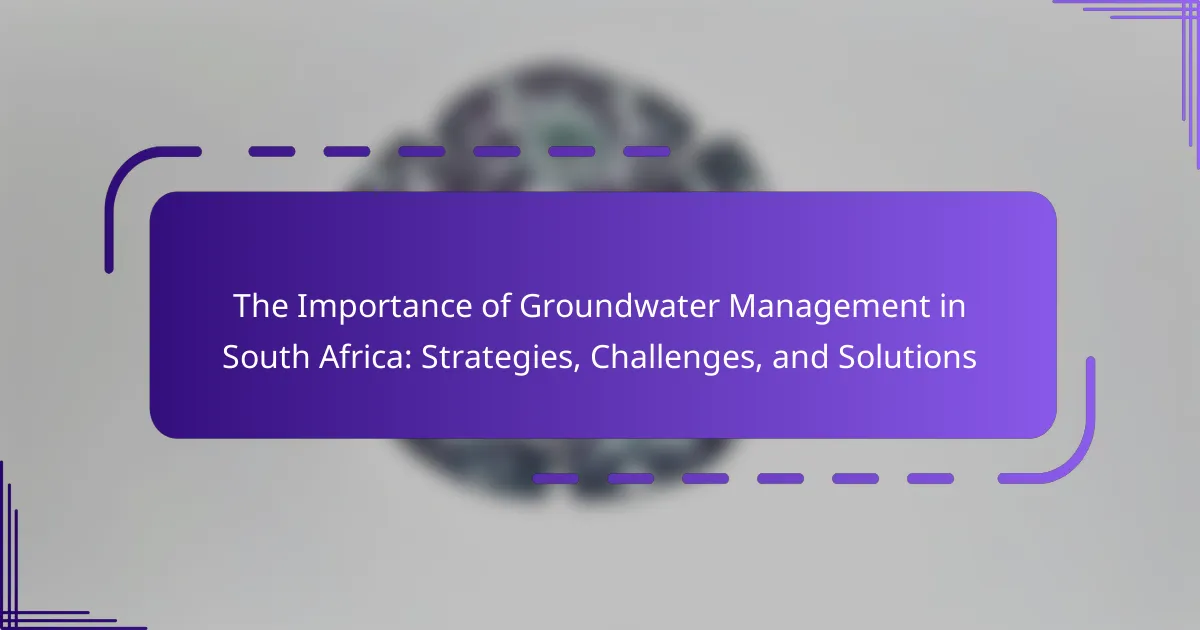
The Importance of Groundwater Management in South Africa: Strategies, Challenges, and Solutions
Groundwater management in South Africa is essential due to the country’s reliance on this resource, which constitutes approximately 60% of its water supply. Effective management practices are necessary to ensure sustainable access for agriculture, drinking water, and industrial use, while also preserving ecosystems. Current challenges include over-extraction, pollution from mining and agricultural activities, and inadequate […]
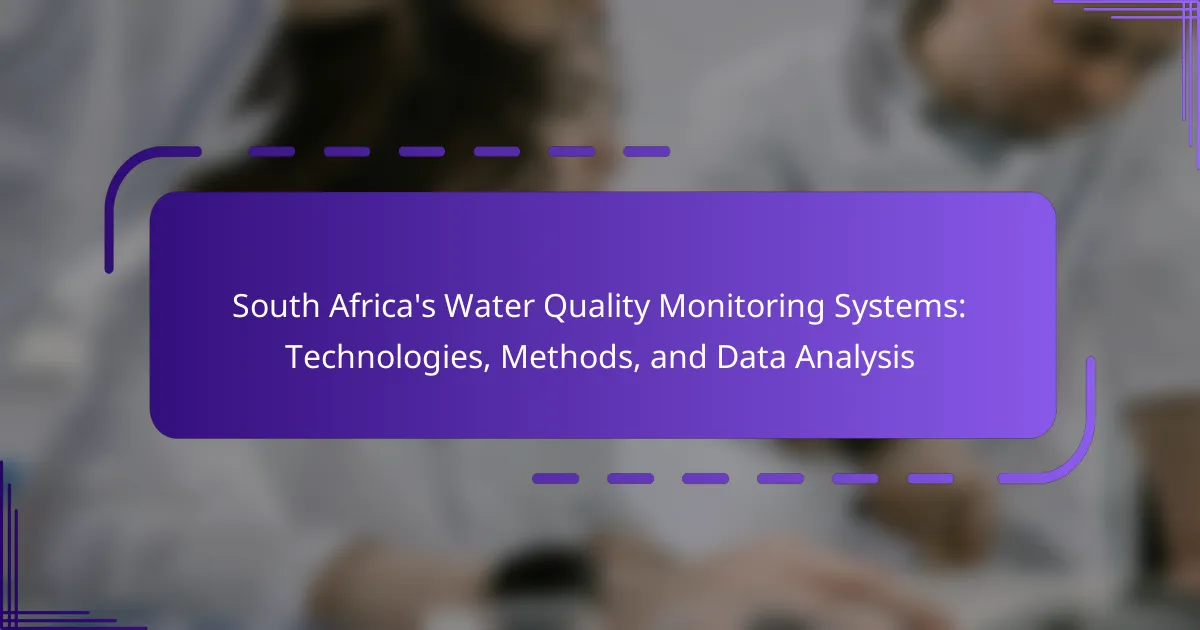
South Africa’s Water Quality Monitoring Systems: Technologies, Methods, and Data Analysis
South Africa’s Water Quality Monitoring Systems are comprehensive frameworks established to assess and manage water quality nationwide. These systems incorporate advanced technologies such as remote sensing, in-situ sensors, and automated sampling systems to collect and analyze water samples, ensuring compliance with standards set by the Department of Water and Sanitation. Key initiatives include the National […]
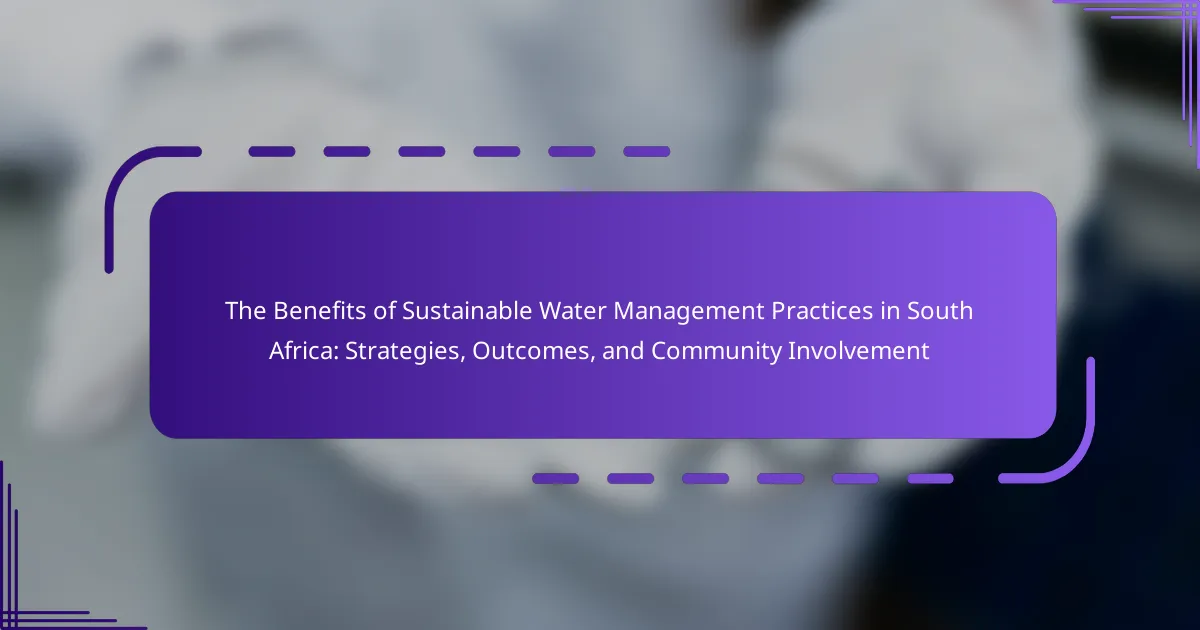
The Benefits of Sustainable Water Management Practices in South Africa: Strategies, Outcomes, and Community Involvement
Sustainable water management practices in South Africa focus on enhancing water availability and quality while reducing wastage and promoting efficient usage. Key strategies include integrated water resource management (IWRM), rainwater harvesting, and wastewater recycling, all aimed at addressing water scarcity challenges. These practices not only support ecosystem health and preserve biodiversity but also empower local […]
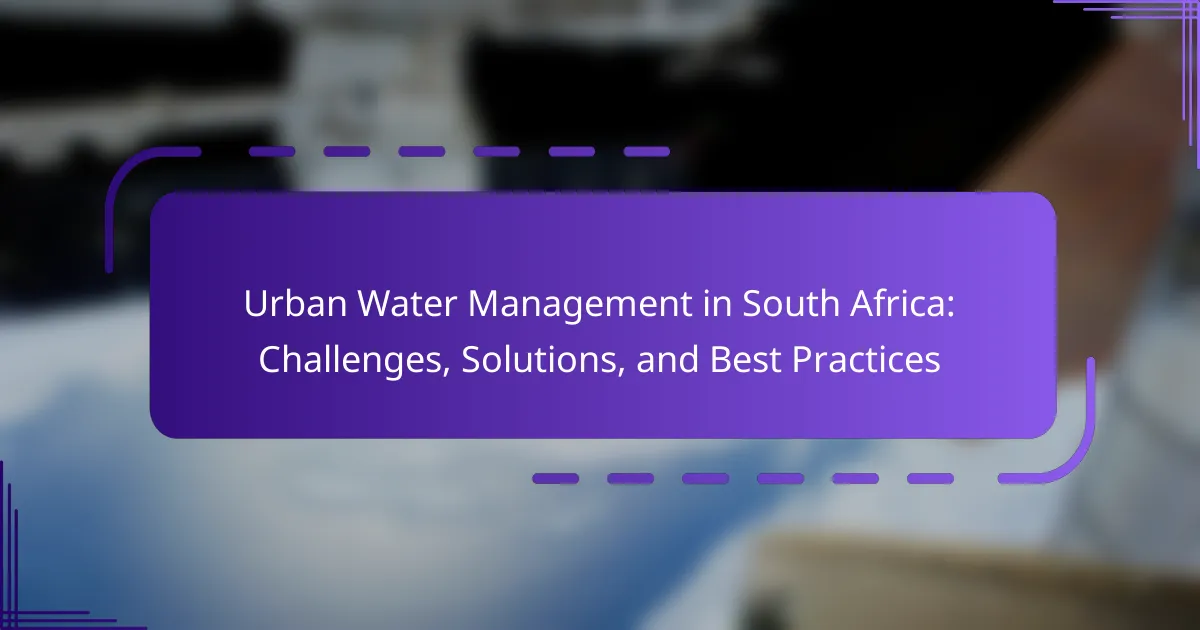
Urban Water Management in South Africa: Challenges, Solutions, and Best Practices
Urban Water Management in South Africa faces significant challenges, including inadequate infrastructure, water scarcity, and pollution. Aging water systems lead to substantial water losses, while climate change and population growth exacerbate water scarcity. Pollution from industrial and agricultural sources further compromises water quality, and socio-economic disparities hinder equitable access. To address these issues, effective solutions […]
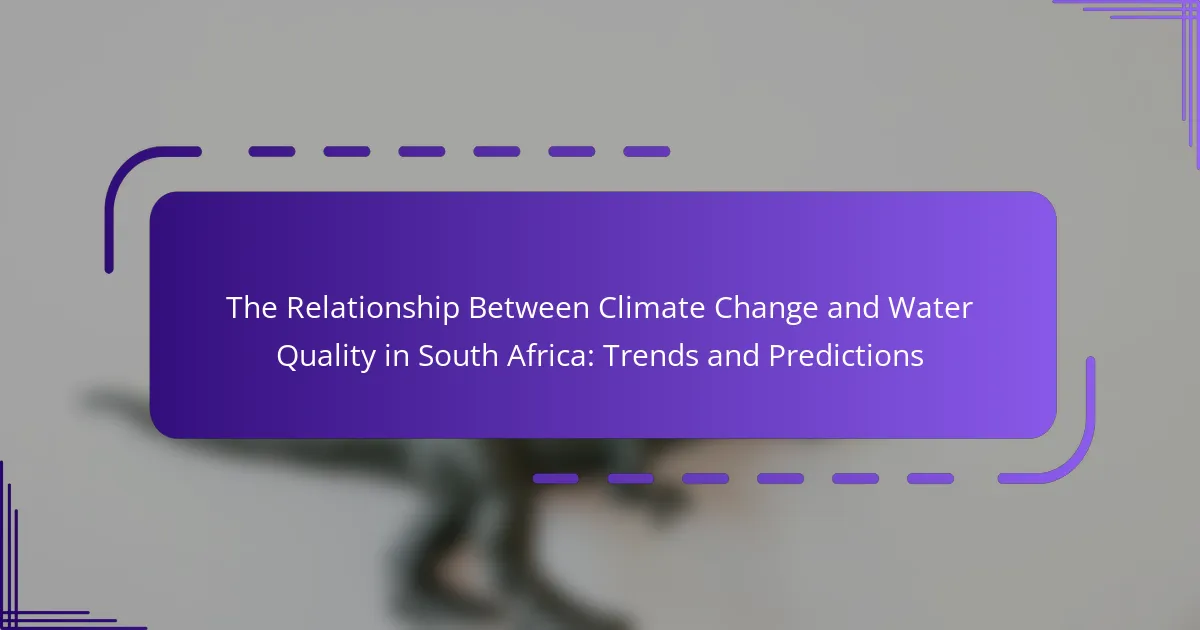
The Relationship Between Climate Change and Water Quality in South Africa: Trends and Predictions
Climate change poses significant threats to water quality in South Africa, primarily through rising temperatures and altered precipitation patterns. Increased evaporation rates diminish water availability, leading to higher pollutant concentrations in water bodies. Additionally, changes in rainfall can cause flooding and erosion, introducing sediments and contaminants into aquatic ecosystems. The South African government acknowledges these […]
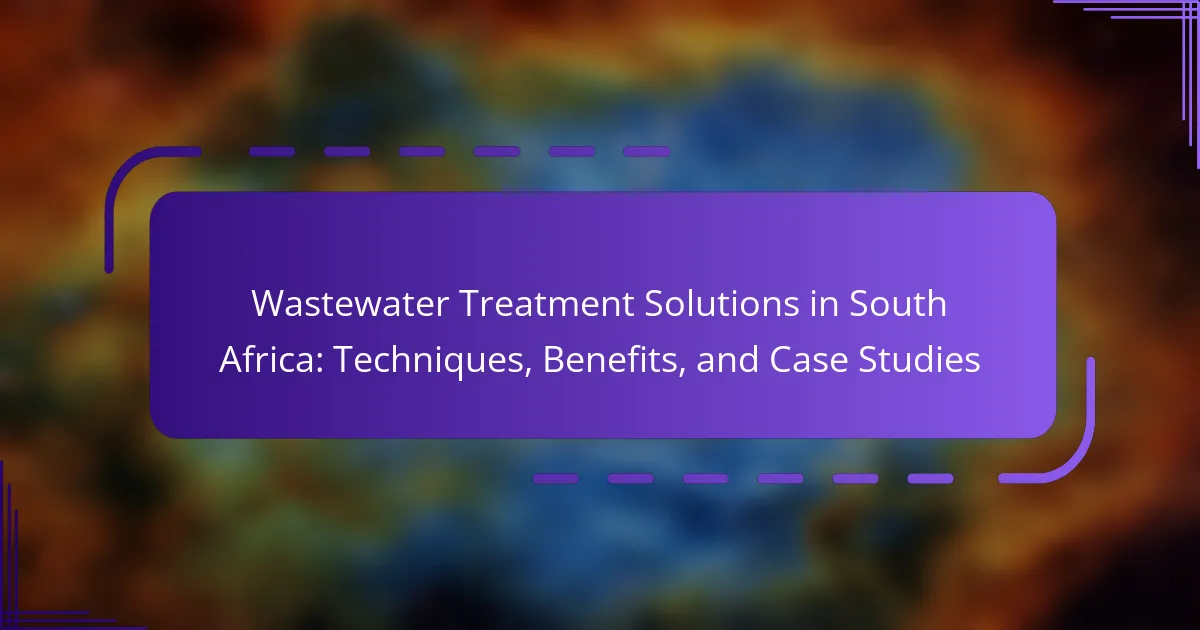
Wastewater Treatment Solutions in South Africa: Techniques, Benefits, and Case Studies
Wastewater treatment solutions in South Africa encompass a range of methods designed to manage sewage and industrial wastewater, focusing on contaminant removal to produce clean water for reuse or safe discharge. Key techniques include biological treatment, such as activated sludge systems and biofilters; chemical treatment, involving coagulation and disinfection; and physical treatment methods like sedimentation […]
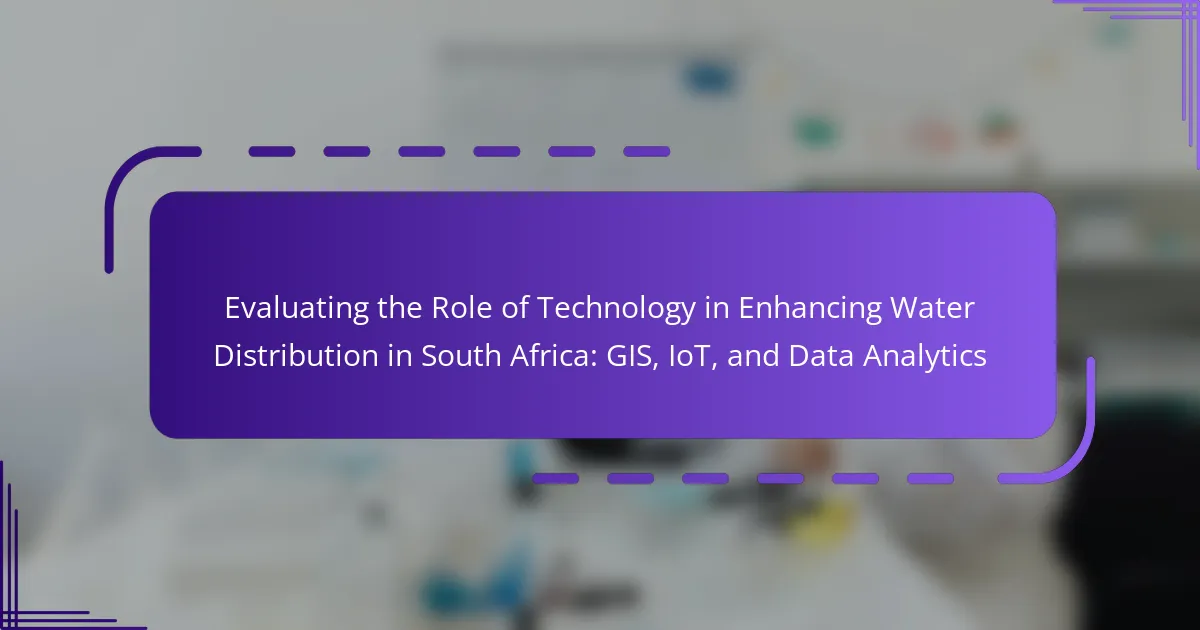
Evaluating the Role of Technology in Enhancing Water Distribution in South Africa: GIS, IoT, and Data Analytics
The article evaluates the role of technology in enhancing water distribution in South Africa, focusing on Geographic Information Systems (GIS), the Internet of Things (IoT), and data analytics. It highlights how these technologies improve efficiency in water management through real-time monitoring, accurate mapping, and data-driven insights. GIS aids in identifying water supply and demand areas, […]
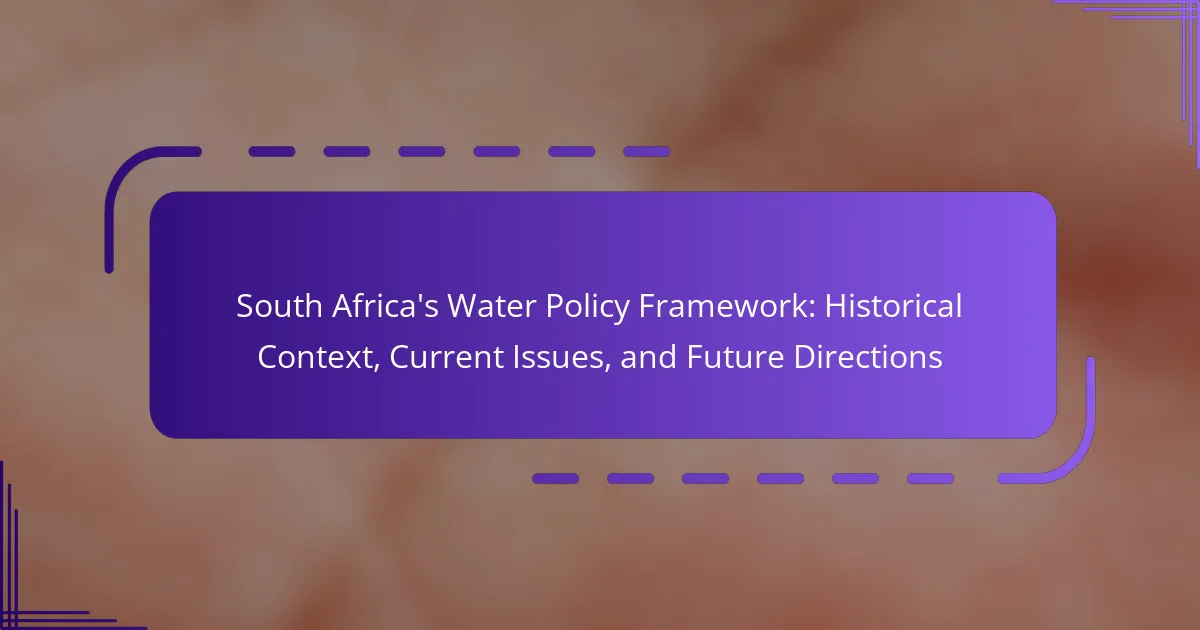
South Africa’s Water Policy Framework: Historical Context, Current Issues, and Future Directions
South Africa’s Water Policy Framework is a structured set of guidelines designed to manage the country’s water resources effectively. Rooted in the National Water Act of 1998, this framework promotes equitable access to water while emphasizing sustainable use and conservation practices. It incorporates Integrated Water Resource Management (IWRM) principles and addresses critical issues such as […]
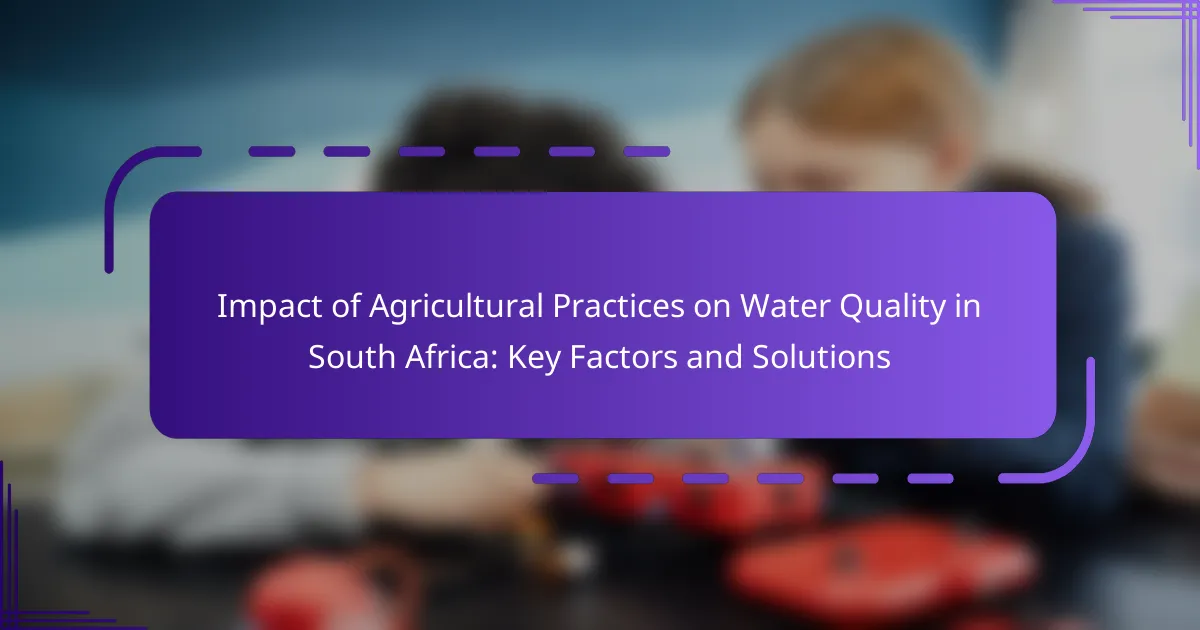
Impact of Agricultural Practices on Water Quality in South Africa: Key Factors and Solutions
Agricultural practices in South Africa significantly influence water quality, primarily through nutrient runoff from intensive farming. This runoff often contains fertilizers and pesticides, leading to eutrophication in aquatic environments, which depletes oxygen levels and harms aquatic life. Additionally, poor land management results in soil erosion, contributing to sedimentation that disrupts ecosystems and water supplies. Research […]
